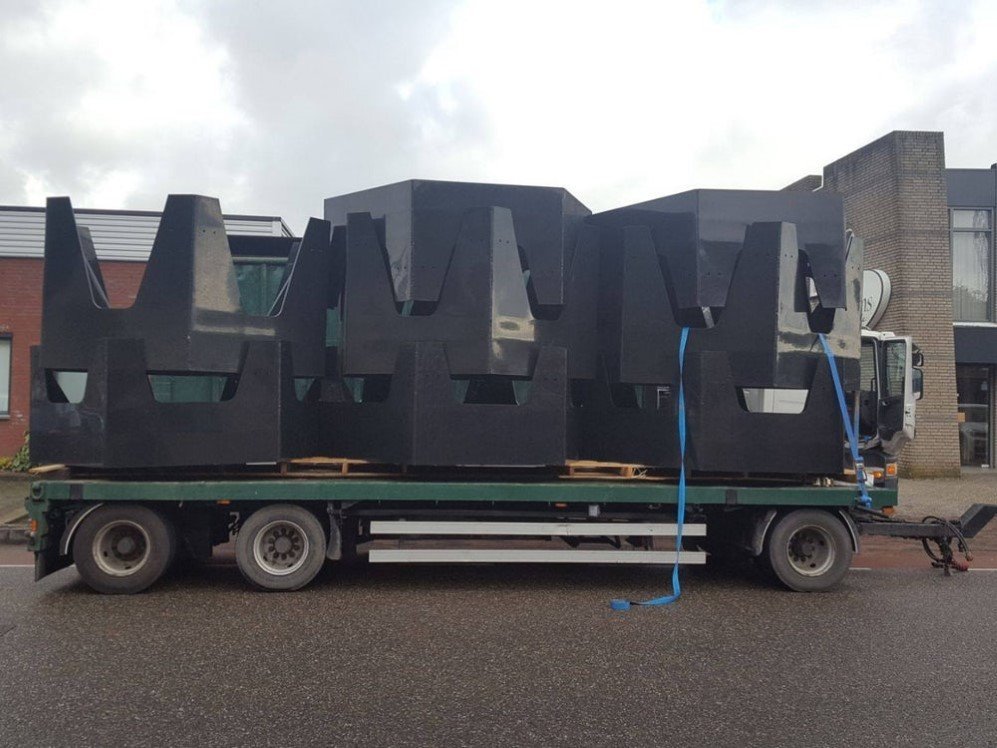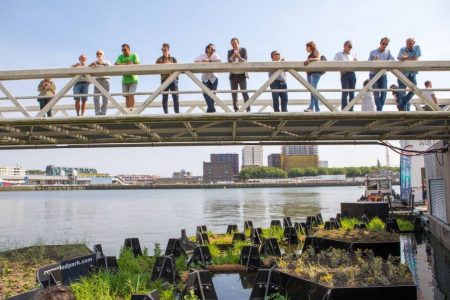If you happen to be an environmentalist at heart then you must obviously be aware of the grand ocean clean up drive that is focusing on retrieving plastics from the Great Pacific Garbage Patch. However, there is another project going on simultaneously that is directed towards using the plastic waste that comes out of the sea.
The concept behind establishing The Recycled Park at Rotterdam’s harbor was to put the plastic waste collected from the sea to good use. The 140 m2 floating park is made up of 28 connected hexagonal blocks that have used plastic waste as their sole raw material. The Rotterdam in turn also serves as a host to plastic litter traps that prevent plastics from entering seas and oceans, passively. The park, while preventing plastic pollution also accentuates the beauty of the dam with its aesthetically pleasing design. Moreover, it also functions as a breeding ground for snails, flatworms, larvae, beetles, fish and birds hence it contributes in improving the flora and fauna of the area.
Contents
The Recycled Park at Rotterdam’s harbor features 28 hexagonal blocks.

The blocks solely utilized plastic waste as its raw material.
Volunteers assisted in collecting plastic waste from the rivers and dam.
The hexagonal patterns are environment friendly as well as aesthetically pleasing.
The 140 square meter green park has accentuated the look of the area and has attracted a lot of tourists as well.
The park took 5 years to materialise after the completion of its design and funding.
The park also serves as plastic litter trap to prevent plastic pollution in the seas and oceans.
The Recycled Park serves as a habitat for flora and fauna of the area, such as snails, flatworms, larvae, beetles, fish and birds.
Images: © The Recycled Park
References: Recycled Park project, Recycled Island Foundation, New Atlas , Business Insider


